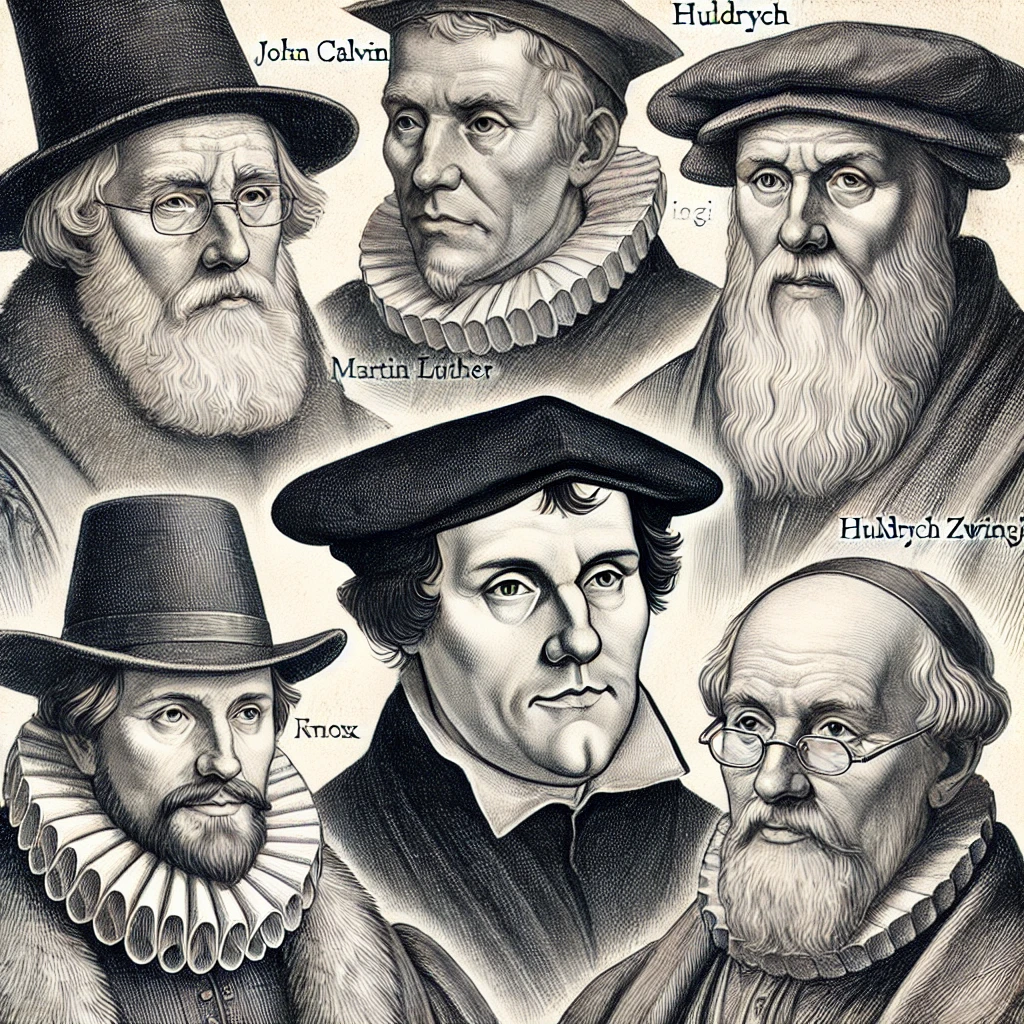
Introduction
King David is one of the most prominent figures in the Bible, known for his faith, his poetic psalms, and his pivotal role in the history of Israel. Despite his significant sins, God used David mightily and established his lineage as the royal line through which the Messiah, Jesus Christ, would come. This character study explores how David serves as a type of Christ and how God’s grace was evident in his life despite his shortcomings.
David as a Type of Christ
A “type” in biblical theology is a person or thing in the Old Testament that foreshadows or prefigures Christ. David, the shepherd king, is one of the most compelling types of Christ in the Bible. Through various aspects of his life and reign, David reflects the person and work of Jesus Christ.
Shepherd and King
David began his life as a shepherd, caring for his father’s flocks. This humble beginning prefigures Jesus, who referred to Himself as the Good Shepherd (John 10:11). Just as David protected and guided his sheep, Jesus protects and guides His people. David’s role as a shepherd also emphasizes his humility and willingness to serve, qualities that are essential in a leader.
In 1 Samuel 16, we see David’s shepherding background highlighted when Samuel anoints him as king. Despite being the youngest son and seemingly the least likely candidate, God chose David because of his heart. This choice reflects God’s preference for humility and service over outward appearances and status.
Jesus, the Good Shepherd, laid down His life for His sheep (John 10:11). He knows His sheep intimately, calls them by name, and leads them to eternal life. David’s care for his sheep, including risking his life to protect them from predators, prefigures Christ’s sacrificial love and protection for His followers.
Anointed One
David was anointed by the prophet Samuel to be king over Israel (1 Samuel 16:13). The Hebrew word for “anointed one” is “Messiah,” and the Greek equivalent is “Christ.” This anointing signifies God’s chosen leadership, which finds its ultimate fulfillment in Jesus, the Messiah.
David’s anointing was a pivotal moment in Israel’s history, marking the beginning of a new era of leadership. It also set the stage for the Messianic hope that would later be fulfilled in Jesus. The anointing oil, a symbol of the Holy Spirit, empowered David for his kingly duties. Similarly, Jesus was anointed by the Holy Spirit at His baptism, signifying His divine appointment and empowerment for His redemptive mission (Matthew 3:16-17).
Victorious Warrior
David’s victory over Goliath (1 Samuel 17) symbolizes Christ’s victory over sin and Satan. David, with faith in God, defeated the giant with a sling and a stone. Similarly, Jesus defeated the powers of darkness through His death and resurrection.
The story of David and Goliath is a powerful example of how God uses the seemingly weak and insignificant to achieve His purposes. David’s faith in God’s power, rather than his own strength, enabled him to conquer the formidable enemy. This victory not only delivered Israel from oppression but also demonstrated God’s supremacy.
Jesus, through His crucifixion and resurrection, defeated the ultimate enemies of sin and death. His victory was achieved not through worldly power but through humility, obedience, and sacrifice. Just as David’s triumph over Goliath inspired hope and courage in Israel, Christ’s victory offers hope and salvation to all who believe.
King of Israel
David was a king who united the tribes of Israel and established Jerusalem as the political and spiritual center. Jesus, as the Son of David, is the eternal King who unites all believers into His spiritual kingdom and reigns from the heavenly Jerusalem.
David’s reign brought a period of relative peace and prosperity to Israel. He established Jerusalem as the capital and brought the Ark of the Covenant to the city, making it the religious center of the nation. This unification and centralization foreshadowed the spiritual unity and centrality of Christ’s kingdom.
Jesus, the Son of David, fulfills the promise of an everlasting kingdom. His reign transcends earthly boundaries and unites people from every nation and tribe. As the King of kings, Jesus rules with justice, mercy, and truth, establishing a kingdom that will never end (Luke 1:32-33).
Suffering and Rejection
David experienced suffering and rejection, particularly from King Saul and later from his own son Absalom. These experiences prefigure the suffering and rejection Jesus endured, culminating in His crucifixion.
David’s life was marked by periods of intense suffering and betrayal. Despite being anointed as king, he spent years fleeing from Saul, who sought to kill him out of jealousy. Later, David faced rebellion from his own son Absalom, who sought to usurp the throne. These trials tested David’s faith and reliance on God.
Jesus, too, faced rejection and suffering. He was despised and rejected by His own people, endured betrayal by one of His closest disciples, and suffered the agonies of the cross. Isaiah 53:3 describes Him as “a man of sorrows, and acquainted with grief.” David’s experiences of suffering and rejection foreshadow the greater sufferings of Christ, who bore the sins of the world.
Covenant and Promise
God made a covenant with David, promising that his descendants would reign forever (2 Samuel 7:12-16). This covenant finds its ultimate fulfillment in Jesus, the eternal King from David’s line, whose kingdom will never end.
The Davidic Covenant was a significant milestone in God’s redemptive plan. God promised David that his dynasty would endure forever and that his throne would be established for all time. This covenant was partially fulfilled in Solomon and the subsequent kings of Judah but found its ultimate fulfillment in Jesus Christ.
Jesus, as a descendant of David, fulfills the covenantal promise of an everlasting kingdom. His reign is characterized by justice, righteousness, and peace. The New Testament repeatedly affirms Jesus’ Davidic lineage, emphasizing His rightful claim to the throne of David (Matthew 1:1, Luke 1:32-33).
God’s Grace Despite David’s Sin
David’s life was marked by both great faith and great failure. His sins, particularly his adultery with Bathsheba and the murder of her husband Uriah (2 Samuel 11), are stark reminders of human fallibility. Yet, God’s grace was profoundly evident in David’s life.
Repentance and Forgiveness
When confronted by the prophet Nathan, David repented sincerely for his sins (2 Samuel 12:13). Psalm 51 is a poignant expression of his remorse and plea for God’s mercy. This highlights the importance of repentance and the assurance of God’s forgiveness.
David’s sin with Bathsheba was a grievous offense, involving adultery, deceit, and murder. However, his response to Nathan’s rebuke was one of genuine repentance. In Psalm 51, David pours out his heart to God, acknowledging his sin and seeking cleansing and restoration:
“Have mercy on me, O God, according to your steadfast love; according to your abundant mercy blot out my transgressions. Wash me thoroughly from my iniquity, and cleanse me from my sin!” (Psalm 51:1-2, ESV)
David’s plea for mercy and his desire for a renewed heart demonstrate the transformative power of repentance. Despite his grave sins, David experienced God’s forgiveness and restoration, illustrating God’s boundless grace.
Continued Use by God
Despite his failures, God continued to use David for His purposes. David prepared the plans and materials for the future temple, which his son Solomon would build (1 Chronicles 28:11-19). This illustrates that God’s plans can prevail through imperfect people.
David’s desire to build a temple for the Lord was a testament to his devotion. Although God did not permit David to construct the temple due to his history as a warrior, He honored David’s intent by allowing him to prepare the plans and gather the materials. This task demonstrated David’s continued usefulness in God’s redemptive plan, despite his imperfections.
God’s decision to involve David in the temple preparations underscores the principle that He uses flawed individuals to accomplish His divine purposes. David’s contributions laid the foundation for the magnificent temple that Solomon would build, a symbol of God’s presence among His people.
Legacy of Faith
David’s heart for God remained a defining feature of his life. He is described as “a man after God’s own heart” (Acts 13:22). His psalms have been a source of comfort and inspiration for countless believers through the ages.
David’s legacy is deeply rooted in his intimate relationship with God. His psalms, which constitute a significant portion of the Book of Psalms, express a wide range of emotions, from joy and gratitude to sorrow and repentance. These heartfelt prayers and songs have provided solace and encouragement to generations of believers.
David’s epithet as “a man after God’s own heart” reflects his earnest pursuit of God’s will, despite his failures. His life serves as a testament to the transformative power of God’s grace and the enduring impact of a heart devoted to the Lord.
Jesus, the Greater David
David’s life points to Jesus, the greater David, who would perfectly fulfill all that David typified. Where David failed, Jesus succeeded. Jesus lived a sinless life, died for our sins, and rose again, securing eternal life for all who believe in Him.
Jesus, often referred to as the Son of David, embodies the perfect fulfillment of the Davidic type. While David’s reign was marked by both triumph and failure, Jesus’ life and ministry were characterized by flawless obedience to the Father and ultimate victory over sin and death.
David’s victories, kingship, and covenantal promises find their true fulfillment in Christ. Jesus’ sacrificial death and resurrection establish





